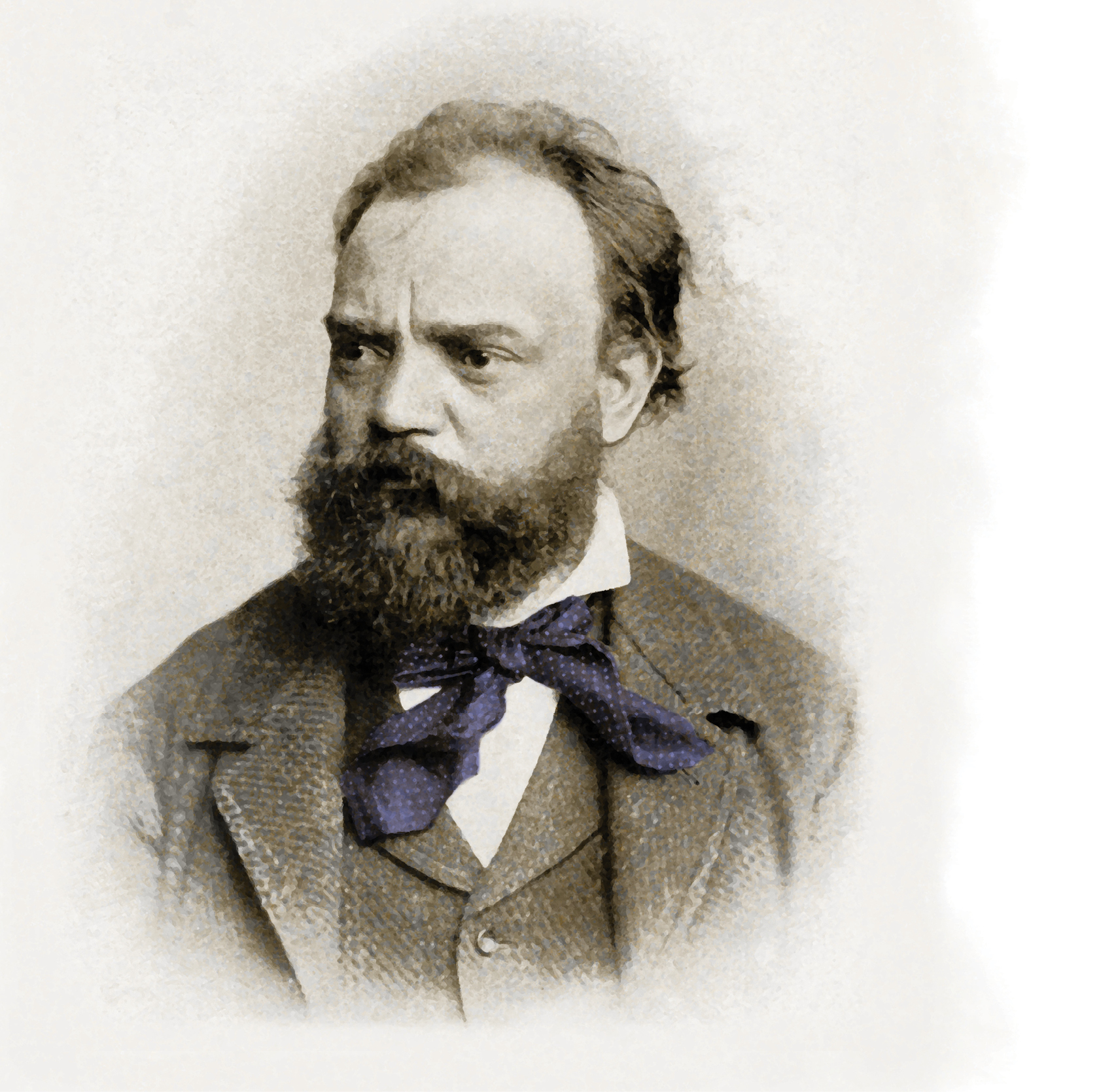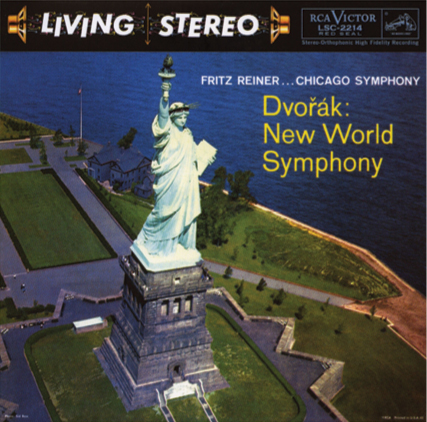Dvorak Rewound

Sometimes, those who know little about us are the ones who teach us the most about ourselves. In the world of art and culture, that may certainly be the case for Czech composer Antonin Dvorak and his brief time spent in America.
Dvorak arrived in the US in 1892 to head the National Conservatory of Music in New York at the request of its president, Jeanette Thurber. Thurber’s hope was not to merely have Dvorak – who had just come off more than a decade-long run of increasing popularity in Europe – simply teach composition and run an orchestra. She asked the composer to explore American culture and the notion that the young country could have its own musical identity.
The result of Dvorak’s nearly three years in New York were both illuminating and controversial, setting the stage for American culture to continue on a path of European favoritism after Dvorak went back to Prague in 1895; but the experience also sparked sometimes uncomfortable diversity conversations about who we are as Americans. His primary work of the time, Symphony #9: From the New World, reflected his exploration of American landscapes, Native American culture, and slavery and the African American experience.
“Dvorak essentially came to the US and was asked to figure out who we are,” says Joseph Horowitz, director of Music Unwound, a National Endowment for the Humanities-funded effort to encourage orchestras to rethink themselves as humanities institutions that deliver not only cultural performances but education as well. “New World Symphony is a very sad piece. It reflects how he felt about Indians, the slave trade. He was inspired by America, but saddened by the things he discovered.”
Horowitz is also the producer of the Saturday, April 6th “Dvorak in America” concert event, in which the Las Vegas Philharmonic will perform Dvorak’s New World Symphony at the Smith Center for the Performing Arts.
Music Unwound’s “Dvorak in America” is far more than a single performance, however. It’s a week-long partnership between the Las Vegas Philharmonic and UNLV’s College of Fine Arts, filled with lectures, discussions, and concerts, not merely reflecting on the past, but demonstrating how this small but important window of American cultural history is still relevant to America’s current societal, cultural, and artistic themes.
Finding inspiration in America
In the late 19th century, east coast cities looked to Europe and the music of Brahms, Beethoven, and Mendelson as a barometer for greatness, explains Donato Cabrera, the Las Vegas Philharmonic’s music director and conductor. Dvorak found that America had a rich, if troubling, well of history and that it inspired music like spirituals and call and response slavery songs to go along with the then still unexplored Western landscapes and Native American music. He became fascinated with spirituals, the immigrant experience, and Longfellow’s “Song of Hiawatha.”
“What you have is a picture of America drawn by a great humanitarian in the 1890s, that focuses on immigration and persecuted minorities as well as the grandeur of the landscape, which is all very provocative and timely today,” Horowitz adds.
These perspectives were not popular, as Dvorak was shedding light on topics many people in the “New World” were still figuring out how to deal with.
“I think what we’re trying to achieve here is an awareness of how important he was in terms of making us aware that we can have a music all our own, especially at that time,” Cabrera adds.
A Bohemian perspective
Dvorak knew little of the American experience and likely had no contact with other ethnicities in his native Bohemia. But certain elements of his upbringing and life experiences may have encouraged an openness to exploring something new. As a butcher’s son, Dvorak grew up in a working-class society. He eschewed any Germanic influence and was a force in putting the Czech arts community onto the global stage. Bohemians were considered an ethnic minority under Hapsburg rule.
“I compare him to Tocqueville as someone who saw us with fresh insight…because he was an outsider and brought no assumptions and prior knowledge,” Horowitz adds.
“[Dvorak] was ahead of his time in that he was already looking at what was distinctively American about our society so long ago. … He is sometimes referred to as a prophet of diversity,” adds Nancy Uscher, dean of UNLV’s College of Fine Arts.
A unique collaboration
As orchestras do not tend to interface with academia often, the Las Vegas Philharmonic’s work with UNLV to present Music Unwound is a rare collaboration, Horowitz explains.
This unique partnership encourages education and public discussion, rather than simply shedding light on great music. As part of the program, Horowitz will lecture at UNLV classes as well as conduct a public lecture. Singer Kevin Deas will also conduct a workshop for UNLV students and both will be involved with pre-concert discussions.
“I think there’s a lot to celebrate when different cultural entities can work together,” Uscher notes, adding that as a Research One institution, UNLV’s top-tier vision includes partnerships to forge community impact with arts and culture. “We really look at the cultural vitality of our community to find ways we can come together to help each other do good work for society.”
Adds Cabrera: “This (partnership) gives the audience a lot of information to think about, which I love…You won’t just go read a program…so much information is embedded into the performance.”
Pushing comfort zones
Of course, with lectures and public discussions about cultural sensitivity, Horowitz admits that the subject matter inherently pushes some audience members out of their comfort zones. He recalls last year’s Music Unwound program highlighting composer Aaron Copland’s time in Mexico drawing negative reaction from an audience member.
“It was great that there was a reaction, and she (the audience member) stuck around. She was there for a long time engaging in conversation,” Horowitz adds.
In the late 1890s, the country dealt with waves of immigrants and there were tensions similar to what is being seen today regarding the subject, Horowitz explains. “There was a certain amount of confusion about what being ‘American’ really is…This is a great instrument for instilling dialogue on American identity,” he offers.
Ultimately, the goal is for the week-long Dvorak celebration and discussion to bring people together to discuss, listen openly, and enjoy good music.
“These shows are so timely,” Horowitz says. “They all have to do with the American experience, which has never been more controversial among Americans…We’re all trying to figure out what will happen next, who we are, and how can we come together?”
Cabrera agrees: “We hope that the information will illuminate the music in an even deeper way…When you have a great understanding of a piece of art, you can appreciate it.”
Music Unwound: Dvorak in America
Key Events:
- Thursday, April 4: UNLV Lecture and Symposium by Joseph Horowitz: A lecture on Dvorak, race and societal attitudes of the time. (more information to come)
- Saturday, April 6, 7:30 PM: Las Vegas Philharmonic performs Dvorak’s Symphony #9: New World Symphony at The Smith Center for the Performing Arts
- Saturday, April 6, 6:30 PM: Special pre-concert performance of Harry Burleigh’s work, with Kevin Deas, bass baritone, and Joseph Horowitz on piano. Burleigh was Dvorak’s assistant, credited with helping to turn spirituals into concert songs. Discussion to follow
- Sunday, April 7, 3 PM: UNLV Symphony Orchestra performs Dvorak’s American Suite at Artemus W. Ham Concert Hall
For more information, visit www.musicunwoundvegas.com.

